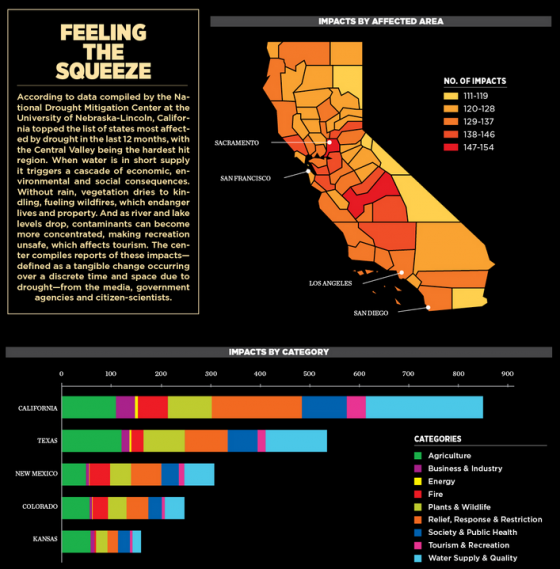Despite pleas to conserve water by Gov. Jerry Brown, Californians have paid little attention, prompting the state’s Water Resources Control Board to consider steep fines of up to $500 per day.
The San Jose Mercury News reports that higher fines would go to those who soak their lawns or use a hose without a nozzle, for example. If approved, this would be the first time the state has imposed such regulations.
Although Gov. Brown’s goal was to cut down on water usage by 20% through a combination of mandatory and voluntary restrictions, statewide water use has been reduced by only 5% so far.
“Having a dirty car and a brown lawn should be a badge of honor because it shows you care about your community,” Felicia Marcus, the board’s chairwoman, said in a teleconference. “We don’t know when it will rain again.
It’s prudent to act as if it won’t.”
She also said that Californians should prepare for further restrictions: “What we’re proposing here as an opening salvo is the bare minimum. If it doesn’t rain later this fall, we certainly will consider more stringent measures.
”
While most of California’s water is used to irrigate Central Valley farms, the new regulations would target urban water-users, where more than half of the water is used on landscaping, Marcus said.
A Stanford Alumni Magazine article pointed out that if climate change model projections play out, the Sierra’s spring snowpack, which supplies water for tens of millions of Californians, will have dwindled and some of the massive aquifers underlying Central Valley farms may dry up from continued overuse. Making things worse, California’s population, now 38 million, is projected at 46 million by 2035—and more than 50 million by 2050.
“In the past, we have developed a water system that does a great job of meeting our needs—the needs of growing cities, the needs of growing agricultural areas,” said Barton Thompson, a Stanford law professor.
“But the approaches that we used were not sustainable, and they are at risk of much more extreme drought conditions than we have today.”
He noted that problems of California and the West cannot be ignored, as 2013 was the driest year since the 1800s Gold Rush era, when record-keeping began. Even if spring rains arrive, they would not be enough to make up the deficit. What’s more, the Sierra snowpack—comprising a third of the state’s water supply—ended its last season at just 18% of its average level.
 Courtesy of Stanford University
Courtesy of Stanford University
